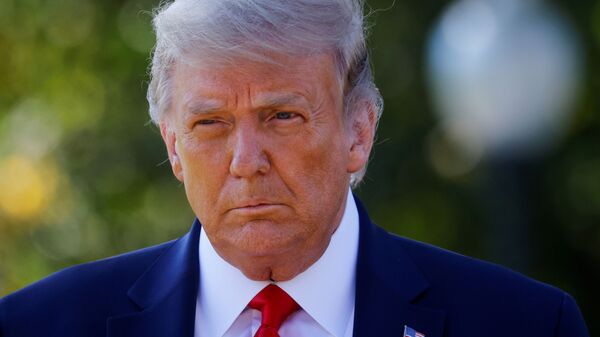According to the study’s abstract, media mentions of Trump “within the context of COVID-19 misinformation made up by far the largest share of the infodemic.” Specifically, Trump mentions made up 37.9% of what the researchers referred to as a “misinformation conversation.”
“The biggest surprise was that the president of the United States was the single largest driver of misinformation around COVID,” Sarah Evanega, the director of the Cornell Alliance for Science and the study’s lead author, told the New York Times. “That’s concerning in that there are real-world dire health implications.”
The study, which was released Thursday and only reviewed articles from English-language media, outlines 11 topics of misinformation which include conspiracy theories like the one suggesting that the pandemic was manufactured by Democrats during the same time as Trump’s impeachment trial in January, as well as “miracle cures.”
In fact, the researchers found that the misinformation topic “miracle cures” made up a “disproportionately large amount of conversation compared to other misinformation sub-topics.”
For instance, Trump was a large proponent of anti-malarial drug hydroxychloroquine as a treatment for COVID-19. Trump took the drug in May for a 14-day period and continued to tout its safety despite the US Food and Drug Administration’s (FDA) warning in June that the drug can cause serious cardiac side effects in some patients.
Trump was also censored by Twitter in July after retweeting a video of Stella Immanuel, a Texas-registered physician, claiming that hydroxychloroquine is a cure for COVID-19. Immanuel had also made questionable claims about how gynecological problems come about from people having sex with witches and demons in dreams.
During an April 23 White House Coronavirus Task Force briefing, Trump also floated the idea that the injection of disinfectant chemicals could potentially treat COVID-19.
“I see the disinfectant, where it knocks it out in a minute. One minute. And is there a way we can do something like that, by injection inside or almost a cleaning. Because you see it gets in the lungs and it does a tremendous number on the lungs,” Trump said at the time. “So it would be interesting to check that.”
Most recently, Trump has also repeatedly claimed that the US could have a vaccine for SARS-CoV-2, the virus that causes COVID-19, by October and that the US will have distributed 100 million doses of the drug by the end of the year. This claim has been questioned by many health experts, including those at the World Health Organization, which doesn’t expect a vaccine to be available until next year.
Throughout the pandemic, Trump has also frequently appeared in public without a mask, despite the CDC’s mask-wearing recommendations.
“Misinformation about COVID-19 is a serious threat to global public health. If people are misled by unsubstantiated claims about the nature and treatment of the disease, they are less likely to observe official health advice and may thus contribute to the spread of the pandemic and pose a danger to themselves and others,” the Cornell researchers concluded.
“Health protection strategies such as hygiene, sanitation, social distancing, mask wearing, lockdowns, and other measures will be less effective if distrust of public health authorities becomes sufficiently widespread to substantially affect public behavior.”
“Specifically, misinformation about treatments for COVID disease can prompt people to attempt cures that might harm them, while fears and distrust about a possible vaccine could undermine the uptake of any vaccination campaign aiming to immunize the public at a later date,” the researchers added.



